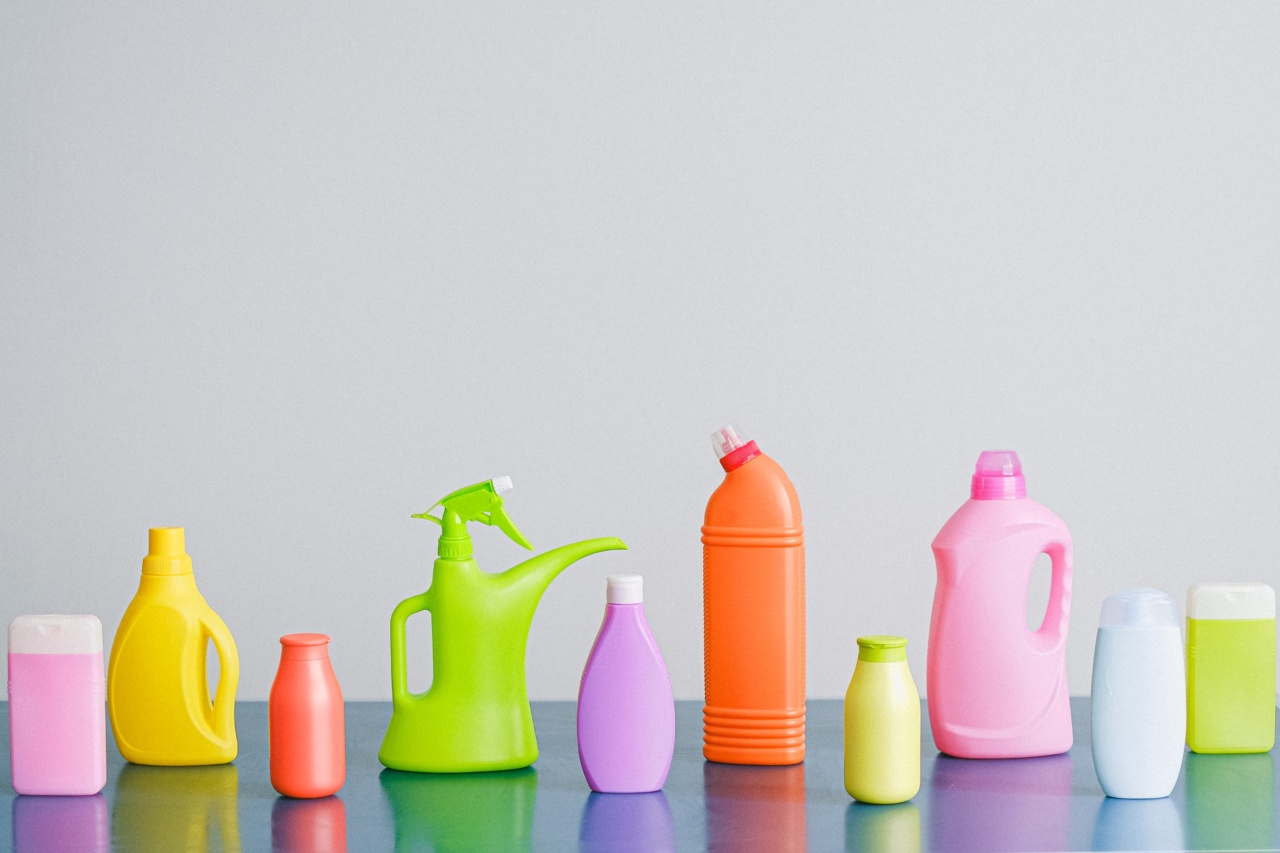In today’s modern society, household chemicals are present in almost every aspect of our lives. From cleaning products to personal care items, these chemicals have become an integral part of our daily routines.
However, research has shown that some of these common household chemicals may be contributing to weight gain and obesity. In this article, we will explore the link between these chemicals and weight gain, as well as discuss ways to minimize exposure and protect our health.
The Link Between Household Chemicals and Weight Gain
Over the past few decades, obesity rates have been on the rise, and researchers have been trying to uncover the reasons behind this alarming trend.
While genetics, poor diet, and sedentary lifestyles are often blamed for weight gain, studies have indicated that common household chemicals may also play a significant role.
Chemicals such as phthalates, bisphenols, and perfluoroalkyl substances (PFAS) are commonly found in many household items and products.
Phthalates are commonly used in plastics, fragrances, and personal care items, while bisphenols can be found in plastic containers, food can linings, and thermal receipts. PFAS are used in non-stick cookware, waterproof fabrics, and stain-resistant materials.
Research has suggested that exposure to these chemicals can disrupt the functioning of our endocrine system, which plays a crucial role in regulating metabolism and body weight.
For example, phthalates have been linked to insulin resistance and disruptions in appetite regulation, while bisphenols can interfere with the production of hormones that control our hunger and satiety signals.
Additionally, some household chemicals have been found to promote fat cell production and storage.
Substances such as triclosan, commonly found in antibacterial soaps, and perfluorooctanoic acid (PFOA), used in non-stick cookware, have been associated with increased fat cell development and accumulation.
Understanding the Impact on Weight Gain
The effects of household chemicals on weight gain may start even before birth. Studies have suggested that exposure to certain chemicals during pregnancy can increase the risk of obesity in children.
These chemicals can be transferred from the mother to the developing fetus, influencing the child’s metabolism and predisposing them to weight gain later in life.
Furthermore, the impact of these chemicals on weight gain is not limited to adults and children. Even household pets, such as cats and dogs, can be affected.
Chemicals found in pet care products and environmental contaminants like flame retardants have also been associated with weight gain in animals.
Reducing Exposure to Household Chemicals
While it may be challenging to completely eliminate our exposure to household chemicals, there are steps we can take to minimize our risk. Here are some practical tips:.
1. Use Natural Cleaning Products
Opt for natural cleaning products instead of those containing harsh chemicals. Vinegar, baking soda, and lemon juice are effective alternatives for many household cleaning tasks.
2. Choose Glass or Stainless-Steel Containers
When storing food or beverages, opt for glass or stainless-steel containers instead of plastic ones. This reduces the potential for harmful chemicals leaching into your food.
3. Avoid Canned Foods
Canned foods, particularly those with acidic contents, can leach bisphenols from the can lining. Choose fresh or frozen options whenever possible.
4. Read Labels Carefully
Before purchasing personal care products, read the labels and avoid those that contain phthalates, parabens, and other potentially harmful chemicals.
5. Filter Your Drinking Water
Invest in a high-quality water filter to remove any potential contaminants from your drinking water, including PFAS.
6. Limit the Use of Non-Stick Cookware
Avoid excessive use of non-stick cookware, as these can release harmful chemicals when heated. Opt for stainless steel, cast iron, or ceramic cookware instead.
7. Regularly Ventilate Your Home
Proper ventilation can help reduce the concentration of indoor pollutants and harmful chemicals. Open windows, use exhaust fans, and maintain good air circulation.
8. Choose Organic and Eco-Friendly Products
When possible, opt for organic food products and eco-friendly household items. These are less likely to contain synthetic chemicals and are generally safer for both you and the environment.
9. Wash Your Hands Regularly
Regular handwashing helps reduce exposure to harmful chemicals that may be transferred from surfaces to your hands.
10. Stay Informed and Spread Awareness
Keep yourself updated on the latest research and news regarding household chemicals and their potential health effects. Share this information with friends and family to promote awareness and encourage healthy choices.
Conclusion
While it is difficult to completely avoid exposure to household chemicals, taking steps to minimize our risk can have a significant impact on our health and well-being.
By choosing natural alternatives, reading labels, and making informed choices, we can reduce our exposure to potentially harmful chemicals and mitigate the risk of weight gain and its associated health complications.






























